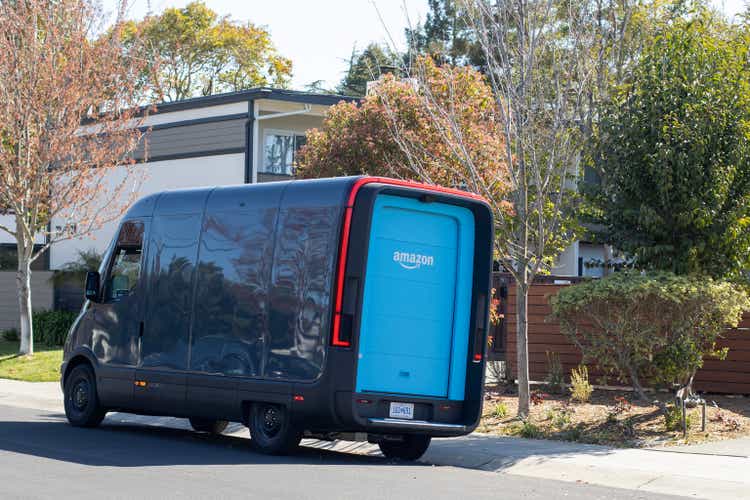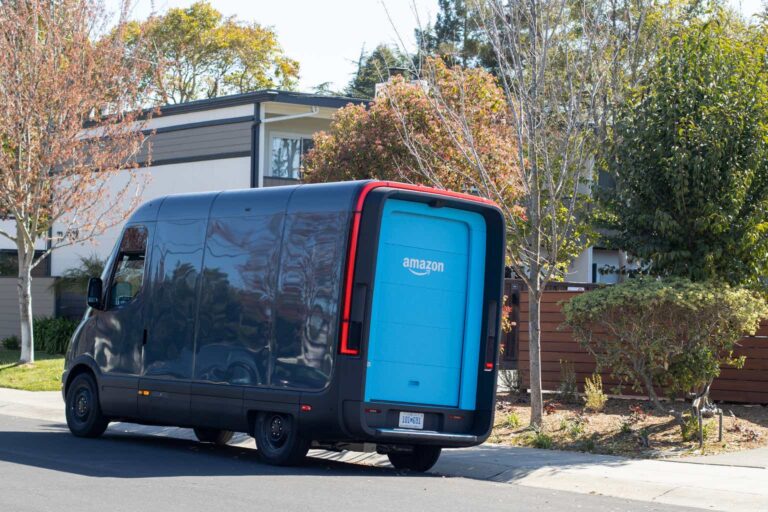hapabapa/iStock Editorial via Getty Images
I think Rivian will survive
Some analysts have expressed concerns that Rivian (NASDAQ:RIVN) may not survive in 2025/2026 due to high level of cash burn, lack of profit and insufficient liquidity to ensure sustainability he. These concerns are valid, and there are growing pressures from falling vehicle prices from Tesla (TSLA) which significantly destroy the future potential of other electric vehicle manufacturers, including unprofitable electric vehicle companies like Rivian. I think the near future will be incredibly challenging for Rivian, and I think management might be wise to take a leaf out of Elon Musk’s book by focusing more on operational efficiencies and cost reduction. If this is not achieved significantly, the company could find itself bankrupt within the next few years, depending on whether or not it manages to succeed. raise more debt. If the company approaches extremely limited cash reserves, raising capital will become less viable due to significantly weakened investor confidence.
In the short term, investors have hope First quarter resultwhere Rivian founder RJ Scaringe said the following:
The first quarter results exceeded our guidance and established a strong foundation for the remainder of the year as we focus on continuing our business. demand generationdelivering improving plant costs and efficiencyadvance the development of R2, and towards profitability.
Key points of optimism included that the company reiterated its path to modest gross profit in the fourth quarter of 2024 and that the best-selling electric vehicle in the United States above $70,000 in the first quarter of 2024 was the R1S of Rivian. However, the company missed its GAAP and normalized consensus EPS estimates by -$0.21 and -$0.07, respectively. Therefore, I think this helps describe what I will discuss in detail below. In the short to medium term, expect volatility, but in the long term there is significant, albeit high risk, upside potential.
Many readers will know that Amazon (AMZN) invested substantially in Rivian over several rounds. Therefore, I believe that Amazon’s vested interest in Rivian as well as its commitment to long-term environmental sustainability efforts could lead the conglomerate to take a more active role in shaping Rivian’s direction in the future. , or even potentially support it with additional capital. I think Rivian’s future isn’t as bleak as some short-term investors think if we can zoom out and look at the big picture over a longer time horizon. I think an investment in Rivian carries a lot of risk, but due to the lower valuation at present, which includes a price-to-sales ratio less than 2, investors might want to consider how much investment to buy at this time is lucrative. This could be the case if Rivian manages to get through this difficult period and achieve stable, long-term profitability. The odds seem low to many analysts, and I think their caution is justified. However, a small allocation, with mitigated risk, to Rivian, with a long-term philosophy in mind, has outsized potential in my opinion.
Amazon didn’t invest in Rivian for nothing
In my opinion, Rivian could benefit from continued strong growth in demand for electric vehicles. I don’t think ESG initiatives are going away, particularly when it comes to the adoption of electric transportation. I believe that in the long term, electric vehicles will replace fossil fuel cars entirely, and even if Tesla is the ultimate pioneer in this regard, I find it very unlikely that Amazon will buy its future self-driving electric vans to deliver to Tesla. Instead, he’ll get them from Rivian, which is why he invested in the first place. I think the lesson for investors is that Amazon’s management team is particularly wise. They clearly champion the long-term philosophy instilled in the company by founder Jeff Bezos. Investors who don’t understand Amazon’s long-term strategy may not understand Rivian’s value to Amazon as the company continues to implement climate-friendly practices and higher levels of autonomous driving in its fleets. Delivery.
Rivian is actively working to develop autonomous driving technologies, including fully autonomous driving. Rivian’s advanced driver assistance system is known as Rivian Driver+. Although it is not completely autonomous, the dealing with Rivian for every 100,000 electric delivery vans, it is likely that they will include vans equipped to support the future integration of fully autonomous driving technology. Tesla cannot be the only major player in the field of autonomous driving. I think in the future, Tesla is likely to capture the self-driving taxi market, potentially as a dominant supplier due to its automotive focus compared to companies like Waymo, a subsidiary of Alphabet (GOOGLE) (GOOG). However, Rivian’s time to shine hasn’t really arrived on this front yet. I don’t think it will try to corner the robo-taxis market; there is already too much competition. The wise strategy to adopt, which seems consistent with management’s actions thus far, would be for Rivian to focus on keeping its commercial cars competitive with autonomous assistance and, eventually, fully autonomous driving, then she strives to be an exceptional service provider. quality for Amazon in delivery vans, capturing a large and very important share of the autonomous vehicle market in the future, given that Amazon is the largest digital retail marketplace and delivery service in the world. Perhaps other analysts didn’t realize that Amazon is so invested in this area. The fact that Rivian is going bankrupt indicates that Amazon was so reckless in letting billions of dollars of its investment in the company slide: unlikely for a company with as impeccable a track record as Amazon, especially when the investment is so important. to such an important future development for the expansion of its margin linked to the use of AI in its delivery services.
The risk remains high even in the long term
While my comment above is clearly bullish, I have rated the investment as a ‘Hold’ at this time as I believe it carries more risk than I am happy to assume on a large scale. Like Amazon, which has only invested a fraction of its total capital in Rivian, I am considering investing only a small percentage of my total portfolio in the company to see if it generates future alpha disproportionate. I think there is enough potential to achieve this.
However, events could also occur that leave Rivian underserved by Amazon. I think it is not excluded that Amazon considers its project with Rivian to be slightly overvalued, and Amazon is known for being very agile, disinvesting and adapting accordingly to changing demand and strategy adjustments long-term. If autonomous delivery becomes less of a driver for Amazon in the future, Amazon could divest its shares in Rivian. I find this unlikely, but I think investors should consider the worst possible outcome.
Additionally, I think it’s possible that in the next five years, stocks won’t do much. I think to really see results from Rivian, investors need to commit to 10 years to begin to see how the relationship between Amazon and Rivian has evolved. Autonomous driving is taking an extremely long time to come to market, including many regulatory pressures. There are also many different logistical issues to resolve, including delivering packages once a van arrives at the delivery site. Let’s look at it another way: Maybe Amazon will discover that it’s developing a much better drone system capable of delivering larger packages, significantly reducing the future value it might have with Rivian. Additionally, it may still need a human driver for deliveries, which would also significantly reduce the long-term value of a relationship with Rivian. The outcome of these issues will not be clear in 3-5 years, and investors will likely trade based solely on price, value, and market sentiment during this period. In my opinion, assessing actual results will take up to 10 years or more, as a significant portion of Rivian’s long-term returns will come from developing the utility of Rivian technology and vehicles in partnership with Amazon, which is expected helping to manage Rivian’s core business, that of utility vehicles, with profitability which is perhaps starting to stabilize.
Key elements
Rivian is a high-risk, high-return speculative investment based on a partnership with Amazon. I think the company will face short-term pressures from the undercutting prices of Elon Musk’s Tesla, but also Rivian’s lack of profitability, even at gross level, which likely leads to a new level of debt financing.
Amazon didn’t invest in Rivian for nothing. Considering that she would leave billions of dollars of her investment on the table seems irrational to me. I think Amazon has an important long-term plan for Rivian, with which it will start operating more aggressively at the right time.
I think even given Rivian’s potential long-term success, investors should prepare for the worst. Personally, I consider investing, but at no more than 3% of the total value of my portfolio. In doing so, I am taking inspiration from Amazon’s book. In my opinion, it is irrational to bet a large part of your capital on Rivian.


